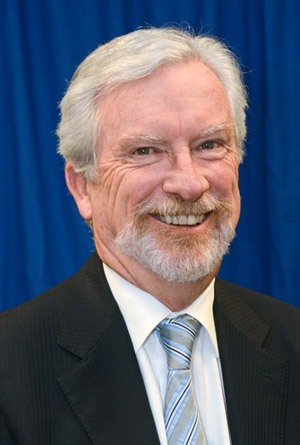Experts look at ways for libraries and museums to digitally preserve history

UBC history professor Doug Owram, FRSC, has chaired a report that examines Canada’s need to keep up with the digital revolution.
A national committee chaired by UBC history professor Doug Owram is calling on Canadian memory institutions such as libraries, museums, archival storage organizations and galleries, to make a concentrated effort to keep up with the digital revolution.
Owram, who teaches in the Irving K. Barber School of Arts and Sciences on the Okanagan campus, chaired the 13-member Council of Canadian Academies expert panel. Their job was to examine the digital revolution and pinpoint the need for Canadians to recognize how it’s changing the way historical records are kept and how they might be lost forever if things don’t change.
The final report, Leading in the Digital World: Opportunities for Canada’s Memory Institutions, was released this week. The committee was asked to examine the challenges faced by today’s memory institutions, from technological changes, to shifting public expectations. It also looked at opportunities to help institutions navigate this period of change, including those related to enhanced public participation and those that can be realized through collaboration with other organizations.
“The digital age has meant big changes for our memory institutions,” says Owram. “Many of the systems we use to document our cultural heritage simply don’t work for electronic communications. At the same time, digital technology offers exciting new opportunities to re-shape the relationships between these institutions and the publics they serve.”
The report looks at key challenges for memory institutions, including the cost and resources needed to digitalize records, technical issues associated with managing digital content, right down to the struggle to remain relevant.
Owram is hopeful Canadian memory institutions take note of the final report and work to build partnerships, including the academic community, non-governmental organizations, and even some private sector organizations, that can help reshape policies and identify strategic opportunities for historical digitalization.
“We know that people care about their past: in one survey we cited, 95 per cent of Canadians felt that it is important that Canada’s documentary heritage is preserved for future generations,” says Owram. “Politicians and decision-makers need to know that, and to continue providing support, not just to sustain things as they are, but to encourage and hasten the digital transition. If action isn’t taken, we’re going to fall further and further behind.”
View the full Council of Canadian Academies report: Leading in the Digital World: Opportunities for Canada’s Memory Institutions.
—30—